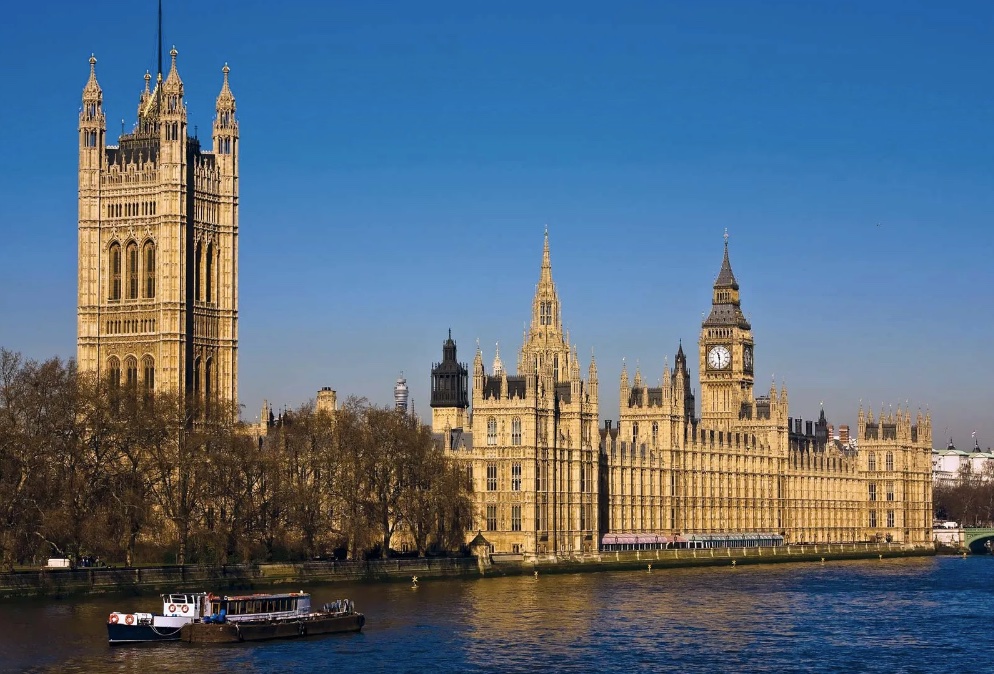
AIDAN CURRAN – NOVEMBER 29TH, 2022
EDITOR: ANGELA CHEN
Though only a fortuitous accident that this article was written around the right time, the resignation of Liz Truss puts an almost unreasonably neat and tidy bow on a decidedly messy story of political intrigue, scandal, and economic debate. The drama around Truss’ stint as Prime Minister provided plenty of color to what was certainly one of the UK’s most interesting premierships in history, despite being its shortest. Though the position of Britain’s Prime Minister is no stranger to being vacated by dint of scandal (as Truss’s immediate predecessor would attest) it is rare that any political controversy is so clearly linked to the macroeconomy, as opposed to the personal affairs that so often unseat the world’s Bill Clintons and Anthony Weiners. The explosive reaction to Truss’s mini-budget is a testament to the old political adage ‘it’s the economy, stupid!’ and gives us a look into what happens when both public and business interests reject a single political idea so soundly it sends waves through international and local markets alike.
Truss is more notable for the circumstances thrust upon her than as a political figure and icon, but her background does merit a look. A near-lifetime Conservative (Tory), Truss flipped a longtime Labor constituency deep in the North of England to earn her first political stripes, rapidly rose through the ranks. She also gained notoriety for her dim view of the average British worker, with the designation “worst idlers in the world” appearing in the pages of a book she co-authored. Espousing typical free-market and neoliberal positions, she stopped shy of endorsing Brexit, voting to remain in the EU but quickly changing tack after the vote concluded. She caught the notice of some of the party’s highest leaders, quickly entering a revolving door of administrative and cabinet positions in the various Tory PMs that followed David Cameron. Rising to the position of International Trade Secretary and brokering post-Brexit trade deals with Japan and the US (which many observers drily noted were very similar to the existing EU trade deals already set up with these nations), Truss eventually came to benefit from the implosion of Boris Johnson’s administration. Truss entirely sidestepped becoming victim of a massive PR incident that claimed the careers of many a Conservative politician. Beating Rishi Sunak in an internal party election, Truss took office and swore her oath to Queen Elizabeth II, who passed away two days later.
Truss did not inherit an enviable position. Reeling from the most significant energy crisis faced by the UK and Europe in history, as well as a cost-of-living crisis driving inflation rates north of 10%, the UK was a floundering country in a time of extreme crisis and malaise left in the wake of COVID. Only about a third of British citizens reported trusting their government, which is fairly low for an OECD country. The national spirit was dealt another blow by the death of the Queen, whose Lying-in-State ceremony drew a quarter million people. Furthermore, Truss took power as an official entirely unelected by the British populace—a bar which even her predecessor had cleared before his ignoble downfall.
Two weeks into her premiership, her Chancellor of the Exchequer (chief financial executive), Kwasi Kwarteng, announced what the media called a ‘mini-budget’: an informal proclamation of government spending allocation for the next financial year. What followed was an explosive political reaction that smothered Truss’s premiership in the cradle almost as quickly as she entered office. The budget itself called for the largest tax cuts of any budget since 1972, which would have cost around $49 billion over the next five years. This was to be financed primarily via deficit spending financed from government debt, which would also service a government cap on household energy bills that would cost in excess of $60 billion. Media outlets reacted with fire and frenzy; deficit spending was especially concerning given the worldwide trend of increasing interest rates, but the more potent nerve to hit was a tax cut for the wealthy in a time of increasing hardship among ordinary families and enormous wealth transfers to the wealthy that marked the COVID years.
After the initial media reaction, some commentators took out the history books and did some analysis, many observers pointing out similar circumstances to the UK in the 1970s – an energy crisis, skyrocketing US interest rates, and a Prime Minister hellbent on tax cuts and laissez-faire conservatism. This characterization was not abated by Truss herself seeming to take publicity cues from a figure emblematic of the entire period – the ever-relevant Margaret Thatcher.. Though this was obviously influenced by her gender, Truss’s extreme liberal economic agenda did her no favors in the peanut gallery, and became PR poison essentially overnight. The resulting marketing disaster was so profound and so abrupt that Truss resigned not even a month later, with many a joke and comparison to cabbage drawn at her expense. Unease within Truss’s party only grew as letters of no confidence from MPs rolled in, and the polls showed the biggest rise Labour had seen in years.
The reaction of the markets, though, was the most pertinent death knell for the Truss premiership. Bond markets reacted first, with yields on gilt-edged securities (the equivalent of US Treasury bonds) rising sharply as a reaction to the announcement that the tax cuts would be made up for with massive borrowing. Second-order effects included a massive impact on the market for pension funds: owners and managers of pension funds often hedge their coupon-income risk for fixed-rate risk by using a receiver swap to buy Treasury bonds – they faced margin calls and blew up their portfolios as bond yields rose to astronomical heights.
The pound fell precipitously, a condition made worse by the US dollar’s meteoric rise in the wake of interest rate rises. This was felt acutely by the UK public in again a time of soaring inflation and a genuine cost-of-living crisis. The response wasn’t even contained to the UK’s own borders; international reactions ranged from muted disapproval to outright condemnation – President Biden described it as a “mistake” in a clean break from typical diplomatic decorum. Even the IMF issued a warning that the measures were likely to increase inequality, and Moody’s cautioned that the move could “permanently weaken the UK’s debt affordability”. Such a scandalized reaction in all directions, from institutional ministers to newspaper pundits, is ample evidence of a controversial policy that did not introduce the stability and continuity of leadership that Truss vowed to make a key part of her tenure as Prime Minister, and which Britain was desperate for after the ignoble ending of the Johnson premiership.
This seeming betrayal of the British public at a time of great need outweighed any goodwill that Truss might have obtained by replacing a roundly unpopular PM and contributed hugely to her status as Britain’s shortest-serving Prime Minister. The dominos fell quickly: Kwasi Kwarteng was flown back from a meeting of finance ministers in Washington D.C and asked personally to resign on the 14th of October, with Truss herself resigning some six days later. In the interregnum, Kwarteng’s replacement Jeremy Hunt recanted Kwarteng’s proposed budget almost in its entirety, with a speech that sounded almost apologetic, but it was not enough to save Truss’s image from the public or the aghast inner circle within the Conservative party.
The finer points of Truss’s economic agenda do deserve some discussion, and their potential effects if enacted can be speculated on – just what would Trussonomics have done to Britain? The finer points were a cutting of the basic rate of income tax by 1% to 19%, and slashing the marginal income tax rate at the highest income level to 40% from 45%. A bevy of corporate tax cuts, land taxes and alcohol duties accompanied this measure, but the tax cut specifically targeting the ultra-wealthy earned the lion’s share of public ire. The aforementioned energy price cap seemed to much of the public like throwing a dog a bone in the wake of outright looting, a tax cut so large and so laser-focused on a sector of the populace without great need.
We can also get an idea of what Trussonomics would have done by looking at what it did manage to do even without being formally enacted. Trust in the UK government and confidence in the Conservative party to produce sound economic governance has hit the floor, with bond yields having stabilized but still not fully returned to the level they were at before Kwarteng’s mini-budget was announced. The lasting consequences of Trussonomics will outlast both its disastrous inception and its sordid shuffle off the pages of history, to the people of Britain’s detriment.
Yet in the wake of such a catastrophic failure of government, public trust, and the political machine, one might expect there to have arisen a more credible opposition to the underlying political forces behind Trussonomics. But none seems to have emerged even in the wake of the Conservative party’s implosion. Jeremy Hunt’s hard pivot to austerity is no more popular with voters than Kwarteng’s mini-budget, and has done nothing to improve the Conservatives’ moribund prospects or the significant poll imbalance towards Labour. Moving from one wildly-unpopular neoliberal solution to another does not seem to resonate with the British public to say the least. With no anointed challenger appearing to step up, it is looking to be a long year and a half until Britain’s next General Election.
Featured Image Source: Britannica
Disclaimer: The views published in this journal are those of the individual authors or speakers and do not necessarily reflect the position or policy of Berkeley Economic Review staff, the Undergraduate Economics Association, the UC Berkeley Economics Department and faculty, or the University of California, Berkeley in general.



